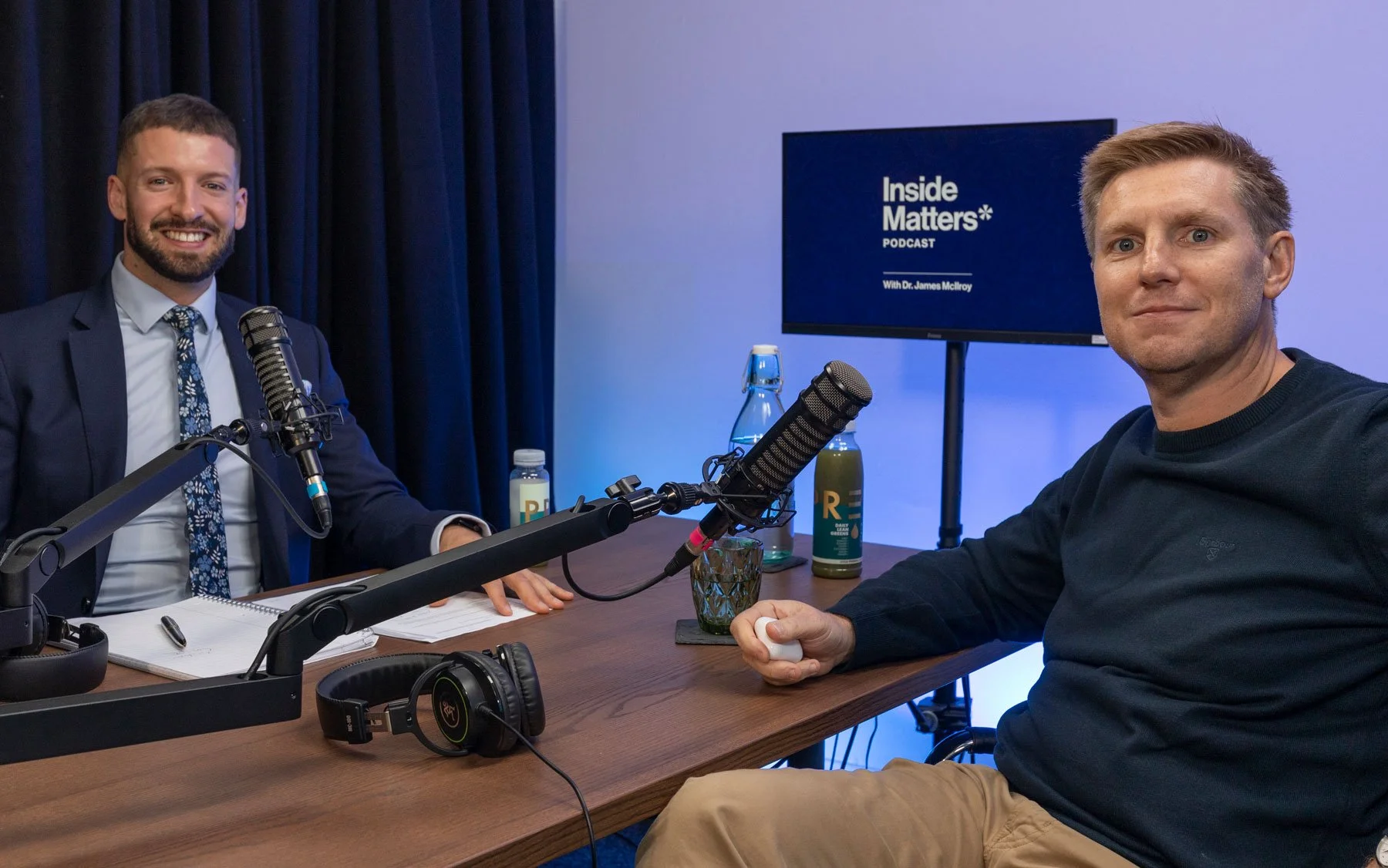Ep.05 – Dave Stevens
Episode five of Inside Matters
Discussing microbial therapeutics, pharmaceutical manufacturing and building a best-in-class contract development organisation
Contract development manufacturing organisations (CDMOs) are companies that provides development and manufacturing services to the pharmaceutical and biotechnology industries. Dave is CEO at ArrantaBio and Vibalogics, specialist CDMOs that work in the field of advanced therapies. The Inside Matters conversation primarily focussed on ArrantaBio and their expertise and experience in microbial therapeutics. Dave’s vision is to build a sustainable business for shareholders / investors by building a mission driven organisation that delivers a great service for customers.
Live biotherapeutic products (LBPs), also known as microbial therapeutics, present unique challenges for drug development companies and manufacturing teams. In contrast to other types of drug, which are typically sterile, microbial therapeutics are inherently not sterile. In fact, it is thought that for LBPs to be successful, each product has to contain a defined number of microorganisms from specific groups / species. The nature of the products mean that manufacturing facilities have to be specifically designed to protect both the product and the operators.
Dave has had personal successes in modulating his own gut health through a specific diet called intermittent fasting, which is discussed in the episode. Tune in to learn more about his journey and the ArrantaBio story.
Key takeaways from this episode:
ArrantaBio was formed in 2019 by Mark R. Bamforth and co-founder Iain Baird.
The Company specialises in the development and manufacture of advanced therapies, including microbial therapeutics.
ArrantaBio has over >200,000sq ft of state-of-the-art facilities including commercial ready suites.
Dave describes there being serval hundred companies developing microbiome therapeutics, with around 20 in the clinic or near to initiating clinical trials.
ArrantaBio focussed on microbial therapeutics that are manufactured using fermentation. These are typically consortia of strains that have been selected for particular reasons.
James and Dave discussed the spectrum of microbial therapeutic approaches. The nearest to approval are those derived from human stool donations. In the long term, James and Dave envision several different modalities being approved.
There were several discussions about why the microbiome is important. One example that was given was that most of the T cells (a type of immune cell) in the body of reside in the gut. Another example given was that studies have shown that people who live with pets have higher microbiome diversity then those who do not, and this may explain why having a pet is associated with having less of some kinds of disease, including depression.
As Dave is a native Scot based in the USA, there were discussions about cultural differences between the two countries in the context of doing business. Dave described a larger investor base in the USA and a higher appetite for risk. For Scotland to become more successful as a pharmaceutical manufacturer, Dave suggested that regional development agencies could provide much larger targeted funding to companies that were scaling up.
The biggest bottleneck in pharmaceutical manifesting for LBPs is a process called lyophilisation, which is industry standard but is associated with significant limitations relating to the time it takes to complete a lyophilisation process. This was identified as a key area for disruptive innovation.
To conclude Dave and James discussed what characteristics and attributes are associated with great leadership. Recurring themes were being a good listener, empathy, and enabling people to reach their full potential.

